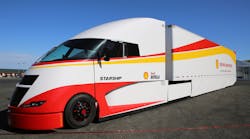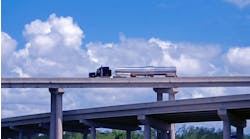In a recent blog post, I wrote about how fuel-efficiency improvements have to be tackled from many sides and how there is no one formula that will work for every fleet. In that blog, I wrote about how fuel efficiency starts with spec’ing.
That is not exactly true. Fuel efficiency actually starts with the truck makers and other manufacturers because they are the ones who decide what products are available to be spec’d.
I would like to see truck manufacturers continue to push the design envelope especially when it comes to aerodynamics, but also with other areas of the truck. It also helps when they make fuel savings technologies standard on their vehicles, so they can be spec’d with no upcharge.
Manufacturers of “bolt on” technologies too need to continue to develop products that help fleets achieve their fuel economy goals. These could be products that reduce the need to idle, improve aerodynamics, improve the powertrain, etc.
Whether it is the truck makers or other manufacturers they need to keep several things in mind when bringing these products to market. The products must be:
- Durable
- Reliable
- Easy to use and fix
- Cost-effective
- Driver-friendly
Today, I want to focus on the driver piece. Even with all the technology on today’s trucks, drivers still play a big role in the operating efficiency of a truck. OEMs and other manufacturers would be wise to listen to what drivers have to say when they are designing products. The current and anticipated continued driver shortage means drivers have some leverage with fleet management about what goes on their trucks.
You can design and build the most fuel-efficient product, but if the driver is not going to use it properly the fleet has wasted its money.
I am not suggesting that you let drivers be the only voice you listen to, but it would be a good idea to spend some time talking to them about what they like and dislike about existing fuel-saving technology to see how you can build a better mousetrap.
I don’t envision a time when the industry will not be concerned about getting better fuel economy, so now is as good a time as any to make sure all the stakeholders — especially the ones situated where the rubber meets the road — are given a chance to provide input. Remember, you never know where the next great idea will come from. It could be from the man or woman behind the steering wheel.



